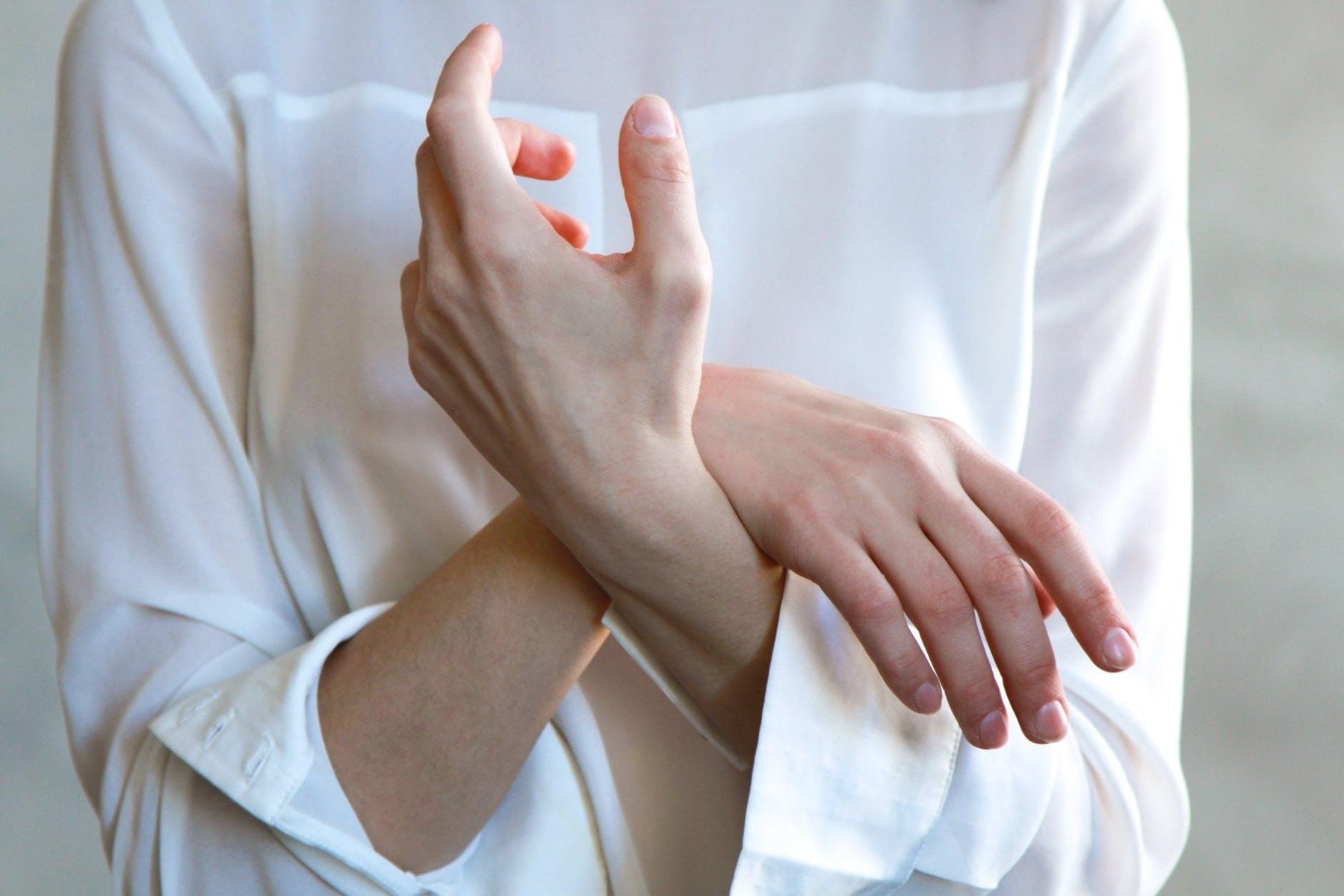Ever noticed a numbness in your hands, legs, feet or arms? This can be completely normal. It can also be a sign of an underlying condition or a lifestyle problem that needs adjusting. In this article, we explore what causes limb numbness, when it can be a problem, and what to do about it.
Numbness can be normal
It is entirely normal for our limbs to sometimes ‘fall asleep’. If we put pressure on our feet too long or lay all night on one arm, the blood flow becomes restricted and this can cause us to lose sensation. This sensation should return within seconds or minutes - often accompanied by some tingling (which is uncomfortable but doesn’t last long at all). Then, our limbs return to normal and we carry on with our day.
Underlying health issues causing numbness
When numbness doesn’t subside, it might be worth thinking about alternative causes. Here is a list of conditions that can be associated with limb numbness.
- An injury to the nerve. What’s important to know is that nerves run as a circuit around our bodies. If you are experiencing numbness in one part of your body caused by nerve damage, it is likely that the nerve damage occurred in a different part of your body (such as your spine or neck). The nerve that is damaged might run all the way down your body to your feet, so it could be that your foot becomes affected by something happening all the way up in your neck!
- Pressure on the spinal nerves. If you are experiencing back problems, such as a herniated disk, you might get pressure placed on a nerve in your spine, which then causes problems elsewhere in the body - such as numbness or tingling.
- Pressure on peripheral nerves is caused by enlarged blood vessels, scar tissue, an infection or a tumour. If this is the cause of your numbness, you’ll need to see a doctor to determine the exact cause.
- An immunity problem or serious infection side effect, such as that caused by HIV/AIDS, TB or Syphilis.
- Restricted blood supply caused by hardening of the arteries, frostbite or inflammation.
- High levels of calcium or potassium in the body
- A B vitamin deficiency
- Side effects of certain medications
- Covid-19 - numbness has been reported in some patients with long covid
- Illegal substance misuse
- Nerve damage caused by alcohol
- Nerve damage caused by chemotherapy
- An animal or insect bite
- Toxins caused by food poisoning
When it comes to more serious conditions, such as HIV, Covid-19 or a tumour, it is likely you’ll experience other symptoms too. But, even if persistent numbness is your only symptom, it’s still important to get it checked out.

Lifestyle causes of numbness
Lifestyle causes of numbness and tingling are more easily resolved than medical causes, because you simply need to make some home adjustments.
Lifestyle causes of numbness can include
- Poor posture caused by sitting or standing improperly, with a curved spine. For example, if you work from your couch on a laptop, you might sit with a curved spine for hours on end, which can put pressure on your spine and cause nerve compression.
- Dehydration. When we are dehydrated, our blood pressure drops and blood flows less rapidly around our bodies. This can cause numbness and coldness in your limbs.
- Poorly fitting shoes. If you are wearing high heels all day, pressure can be applied to your lower limbs, causing numbness, soreness and tingling. Getting properly fitted shoes will help.
- No wrist support. When typing for long periods of time without wrist support, you can place strain on your wrists and cause numbness to your fingers. Having proper wrist support will help.
- Being too cold. Is it winter and you’ve suddenly noticed persistent numbness? It might be the temperature! Sitting in front of a fire or turning the heating up might help bring feeling back to your legs and arms. Failing that, take a hot bath.
- Not moving enough. If you sit for long periods of time, your foot or leg can ‘fall asleep’.
Flexispot can help
We provide a number of products that can help you to combat numbness caused by your lifestyle. Some of these are:
A desk bike: A desk bike is an exercise bike that doubles up as an office chair. You can place it discreetly under your desk and perform lower limb exercises during your meeting or work without anyone noticing. This is perfect for people who find it hard to make time for exercise. It increases blood flow, helps to keep your circulation stable and combats temporary numbness from lack of movement.
Active seating: This type of chair can help you remain more active during your working day. This reduces the likelihood of your lower limbs falling asleep.
Talk to us about our ergonomic furniture designs and how they could help enhance your health and wellbeing.